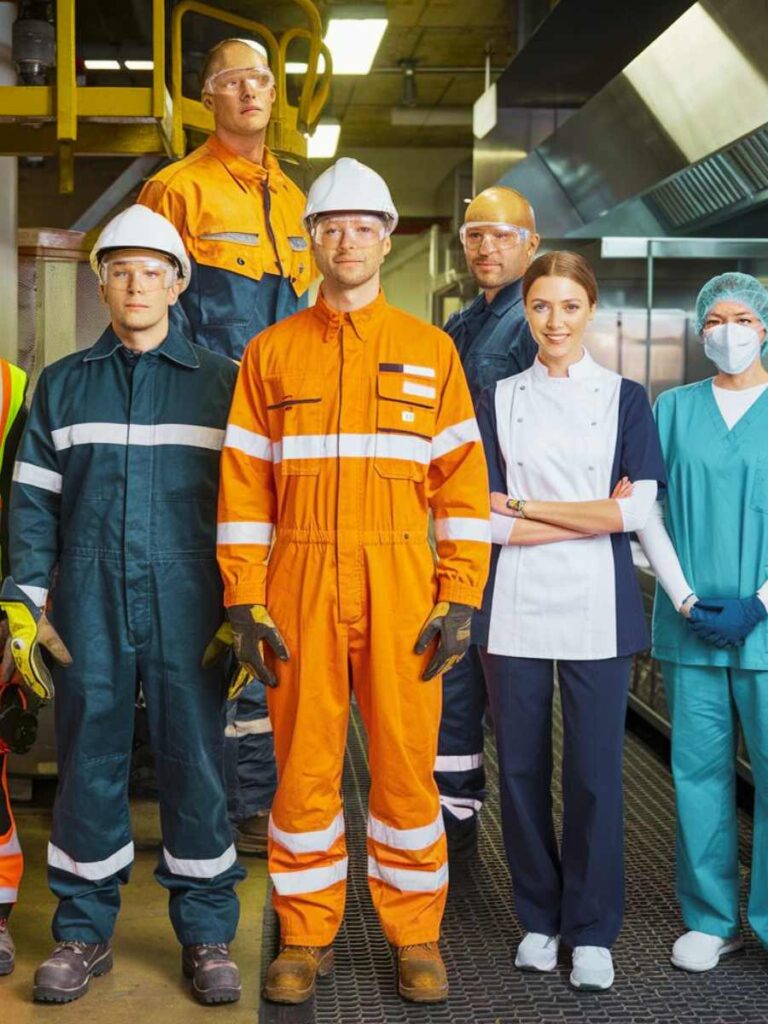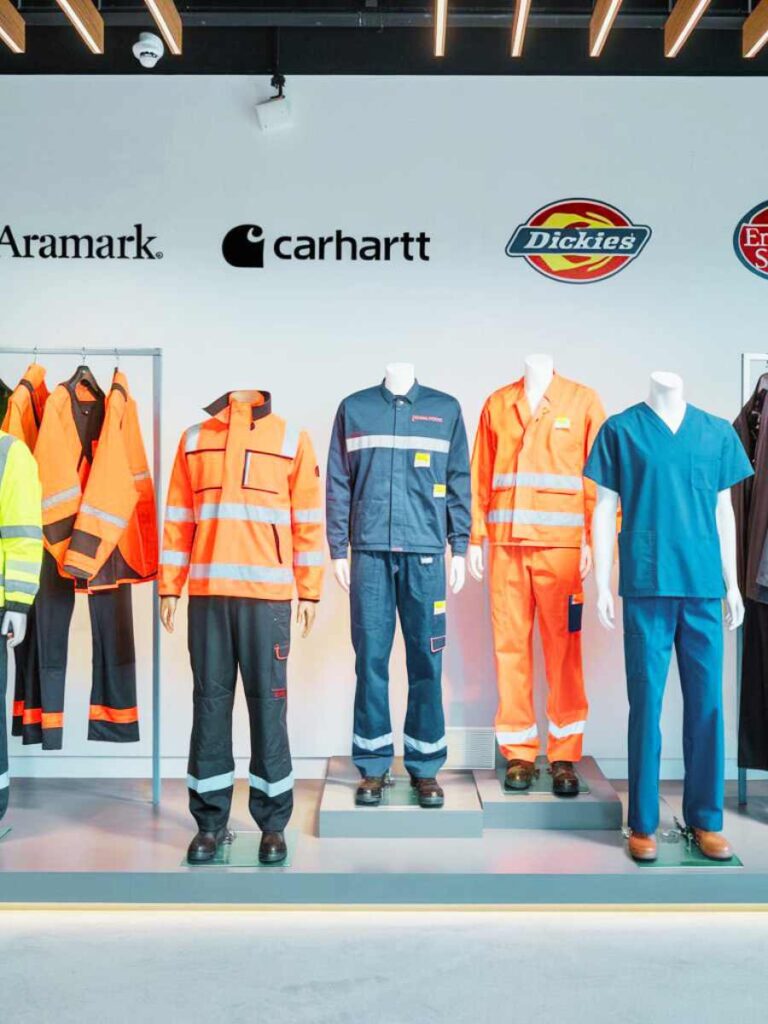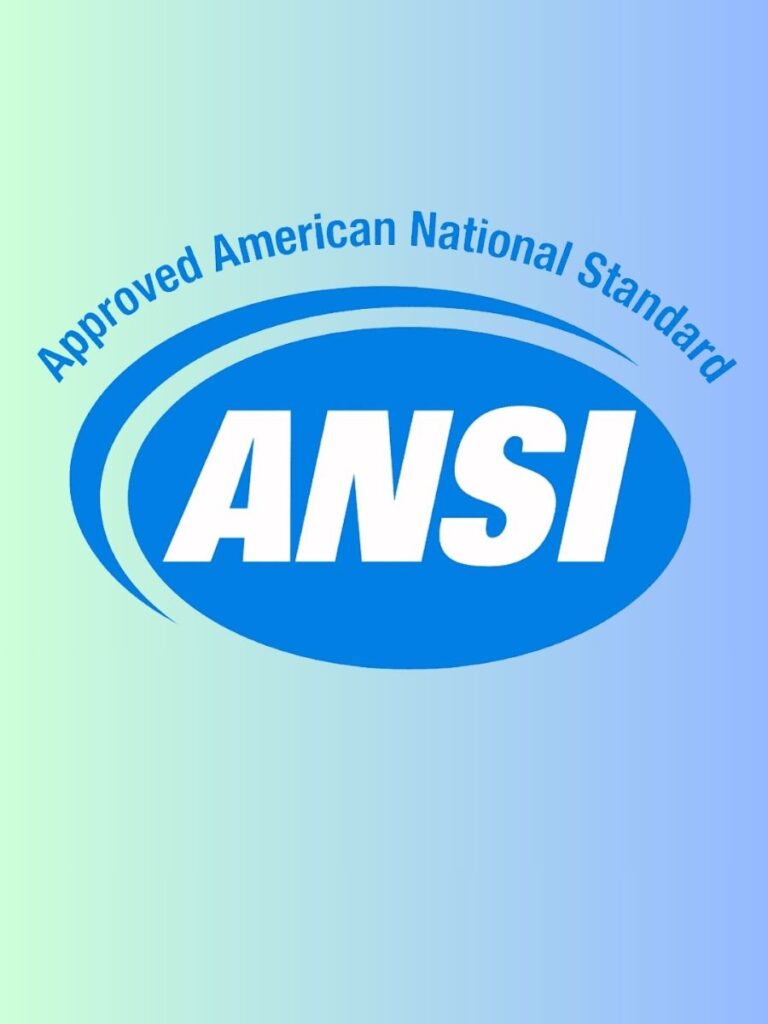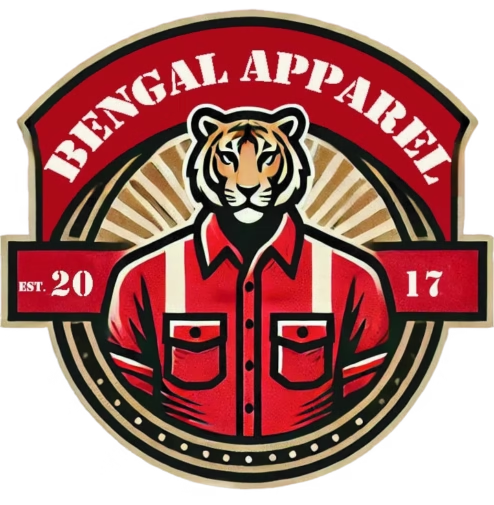In the industrial world, safety and comfort go hand-in-hand. Choosing the right industrial workwear is essential not only for employee safety but also for efficiency and job performance. In this guide, we’ll break down how to select the best industrial clothing across different industries. We’ll cover everything from key features to industry-specific needs, so you can make informed decisions that benefit both your employees and your business.
Why Industrial Workwear Matters
Industrial workwear plays a crucial role in ensuring the safety, comfort, and productivity of employees. Different industries require distinct types of protective gear, whether it’s flame-resistant clothing for welders, high-visibility vests for construction workers, or sterile uniforms for healthcare professionals. Wearing the right workwear not only keeps workers compliant with safety regulations but also reduces the risk of accidents, injury, or contamination.
Moreover, having durable and functional uniforms contributes to a professional appearance, boosting your company’s image. From construction to healthcare, outfitting employees correctly is an investment that can lead to higher morale and productivity.
Key Considerations When Buying Workwear
Before diving into the specific types of industrial workwear, it’s essential to understand the primary factors to consider when making a purchase:

1. Safety Standards
Ensure that the workwear complies with industry-specific safety regulations, such as OSHA standards, NFPA (National Fire Protection Association), or ANSI (American National Standards Institute) for high-visibility apparel. These certifications can vary by industry but are mandatory to reduce workplace hazards.
2. Durability
Industrial work environments are often harsh, requiring uniforms that can withstand wear and tear, exposure to chemicals, heat, and heavy machinery. Look for materials that offer longevity, such as cotton blends, flame-resistant (FR) fabrics, and reinforced seams.
3. Comfort
Employees will be wearing these clothes for long hours, so comfort is the key. Breathable fabrics, ergonomic designs, and moisture-wicking properties can make a significant difference. Prioritize workwear that allows ease of movement and ventilation.
4. Weather Conditions
Depending on the work environment, workers might face extreme heat, cold, or rain. Make sure to purchase workwear that’s suited for the local climate—whether it’s insulated jackets for cold-weather work or moisture-wicking shirts for hot environments.
Customization and Branding
Industrial workwear can also serve as a branding tool. Consider adding company logos or department names to the uniforms for a more professional appearance. Customization can also include reflective strips, extra pockets, or color coding by department.

Industrial Workwear by Industry
Each industry has unique requirements for workwear, ranging from safety features to design and functionality. Let’s explore the specific needs of various sectors.
Construction Industry
In the construction industry, safety is paramount. Workers are often exposed to heavy machinery, falling objects, and hazardous environments. As a result, protective workwear that meets strict safety guidelines is essential.
Recommended Workwear:
- High-Visibility Vests and Jackets: ANSI-approved high-visibility (hi-vis) vests or jackets with reflective strips for better visibility, especially in low-light conditions.
- Hard Hats: Essential for head protection, paired with flame-resistant hoods when necessary.
- Steel-Toed Boots: Offers protection from heavy objects and punctures.
- Durable Work Pants: Look for work pants made from heavy-duty materials like canvas or denim with reinforced knees.
Considerations:
- Weather Resistance: Waterproof and wind-resistant outerwear for those working outdoors.
- Protection from Cuts and Abrasions: Gloves with cut-resistant fabric can prevent injuries from sharp tools or materials.
Manufacturing Industry
Manufacturing environments can vary, from light assembly lines to heavy machinery production plants. Workers in this sector face risks from machinery, chemicals, and extreme temperatures, so clothing needs to offer protection and flexibility.
Recommended Workwear:
- Flame-Resistant (FR) Clothing: In plants with potential exposure to sparks or heat, flame-resistant overalls or jackets are crucial.
- Work Gloves: Depending on the specific tasks, gloves should offer protection from chemicals, abrasions, or heat.
- Anti-Static Garments: In electronics manufacturing, workers may need anti-static uniforms to prevent equipment damage.
Considerations:
- Mobility: Ensure that workwear does not restrict movement, as employees may need to lift, bend, or twist regularly.
- Breathability: In hot environments, breathable fabrics can improve worker comfort.
Oil and Gas Industry
Oil and gas workers often face dangerous conditions, including exposure to flames, chemicals, and extreme weather. Their workwear must be highly specialized to offer protection from all these hazards.
Recommended Workwear:
- Flame-Resistant Coveralls: NFPA-certified FR coveralls that protect against heat, flames, and flash fires.
- Chemical-Resistant Boots: Boots made from durable, chemical-resistant materials are a must.
- Hard Hats and Safety Goggles: Protection from falling debris and exposure to harmful substances.
Considerations:
- Weather Protection: Insulated and weatherproof outerwear is essential for outdoor sites in colder climates.
- Oil Resistance: Opt for workwear that’s easy to clean and resistant to oil and grease stains.
Food and Beverage Industry
Hygiene and cleanliness are top priorities in the food and beverage industry. Workwear needs to prevent contamination while still allowing employees to work efficiently in fast-paced environments.
Recommended Workwear:
- Food-Grade Aprons and Gloves: Made from materials that are easy to sanitize and prevent contamination.
- Hairnets and Beard Covers: Required to maintain cleanliness in food prep areas.
- Slip-Resistant Shoes: Essential for navigating wet or slippery kitchen and food production floors.
Considerations:
- Ease of Cleaning: Choose fabrics that can withstand frequent washing at high temperatures to maintain hygiene.
- Comfort in High-Temperature Environments: Lightweight, breathable clothing is crucial for workers in hot kitchens or production lines.
Healthcare Industry
Healthcare professionals need uniforms that are both sanitary and comfortable. These workers require protection from bodily fluids, chemicals, and contagious diseases, all while maintaining a professional appearance.
Recommended Workwear:
- Scrubs: Comfortable, easy-to-clean, and often color-coded by department.
- Lab Coats: Provide additional protection from chemicals or biological hazards.
- Protective Footwear: Closed-toe shoes made from easily washable materials.
Considerations:
- Antimicrobial Fabrics: Some scrubs come with antimicrobial properties to help reduce the spread of germs.
- PPE Integration: Workwear should allow for easy integration with personal protective equipment like face shields and masks.
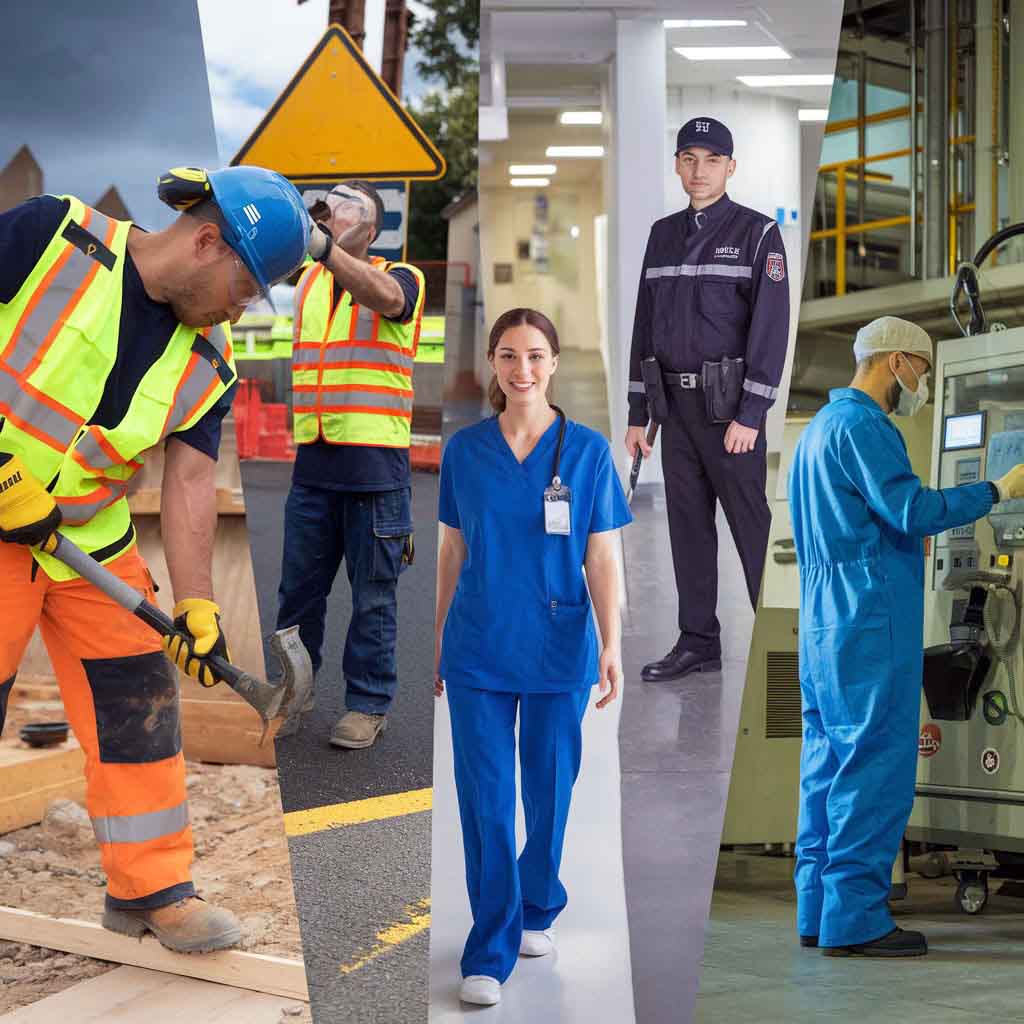
Top Features to Look For
Regardless of the industry, there are certain features that enhance the functionality and safety of industrial workwear. Consider these top features when making a purchasing decision:
1. Reinforced Seams
Workwear with double-stitched or reinforced seams is less likely to tear, ensuring longevity even in tough environments.
2. Moisture-Wicking Fabrics
In hot conditions, moisture-wicking fabrics help keep workers dry and comfortable, improving focus and productivity.
3. Adjustable Fit
Look for uniforms with adjustable waists, sleeves, or cuffs to allow for a better fit, enhancing comfort and safety.
4. Reflective Strips
For industries where visibility is crucial, such as construction or road work, reflective strips or high-visibility colors are necessary for safety in low-light conditions.
5. Pockets and Storage
Many workers require easy access to tools, so workwear with multiple pockets and tool loops is often essential for utility and convenience.
Finally, investing in the right industrial workwear not only ensures the safety and comfort of your workforce but also enhances overall productivity. By choosing workwear tailored to your industry’s specific needs, you’ll protect your workers, boost morale, and stay compliant with safety regulations. Whether you’re outfitting a construction crew, healthcare professionals, or manufacturing staff, the right clothing makes all the difference.
Take the time to assess your industry’s requirements, consider the unique challenges your employees face, and select durable, comfortable, and compliant workwear that meets those needs.

